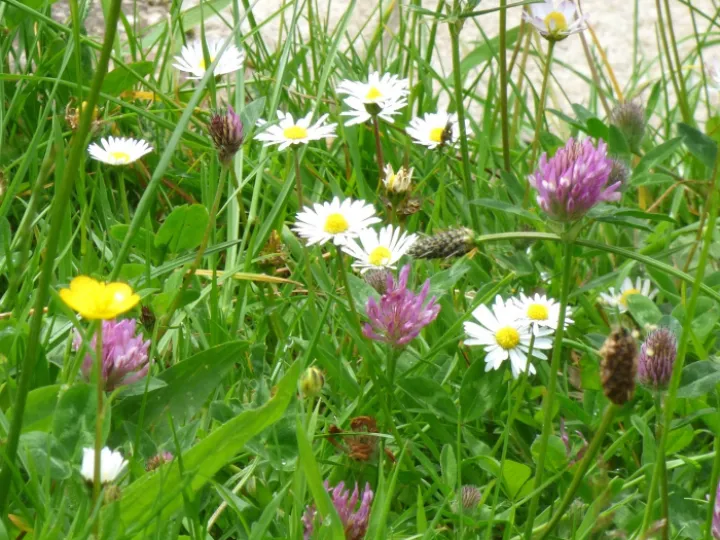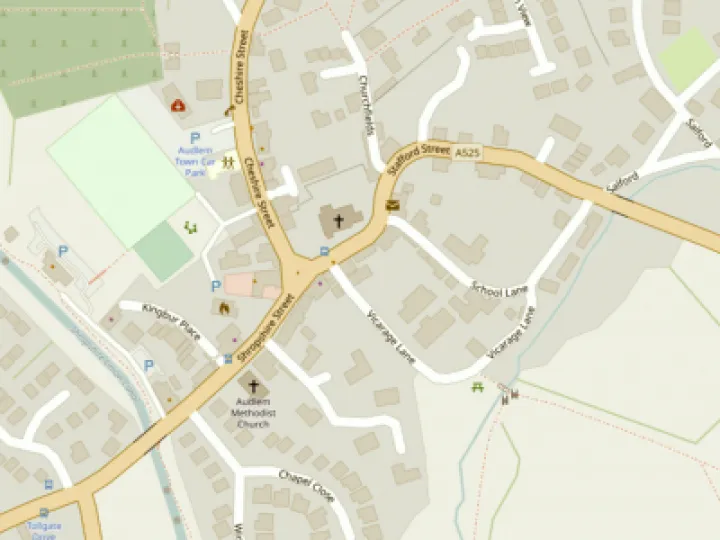







I was pondering the other day as I walked through Turnpike Fields , what is the most common wild plant that we see?. I realised that it was one that we hardly give a second glance to. Of course, it was the Common Daisy. The ubiquitous and resilient nature of the plant means that it holds a particular place in the human psyche. How many can remember the days of making daisy chains as a child either as a bored fielder on the boundary of the cricket field or to plat into a garland for the hair. Perhaps the "he loves me he loves me not" game of adolescence was a familiar past-time (obviously before social media and all that).
The Common Daisy that we are all familiar with, Bellis perennis, (Latin for "pretty and everlasting"), is only one of 23000 species worldwide making up one in ten of all plant species. It belongs to the Asteraceae family, which we have met before with our dandelion look-alikes and thistlely things.
Looking at it closely we will see that the yellow centre is actually made up of a multitude of flower-heads. We may also find different colouring of the petals due to the difference places they are growing. A carpet of buttercups and daisies is a wonder to behold. Around Lock 2 on the towpath is an annual show of Summer until the mower men get to work.
The humble Daisy has a very important part in the whole eco-system. Its resilient nature means that it can flower throughout the year, in almost any conditions, and thus provide an important food source for insects at times of scarcity. It plays a vital role in the biodiversity of many habitats.
I have always thought of a daisy as a "Daisy", however its proper common name is Common Daisy or English Daisy. It does have a number of other names including Bruisewort and Woundwort. This leads us to consider how the daisy has influenced human life, apart from our childhood frolics. The answer is that it has an association that goes back at least to the early bronze age, when our ancestors realised that it had medicinal properties. It contains astringent properties ( a chemical that shrinks or constricts body tissues) which the Romans were quick to utilise, by harvesting sackfuls during wartime. The juice was used in the healing of sword and spear wounds by reducing blood loss. It is also said that Henry VIII famously ate daisies to cure stomach ulcers.
So if your name is Daisy, or you named your daughter Daisy, or your cow, horse, dog or cat or even hamster is called Daisy, you have tapped into a very long and worthy heritage.
Do ducks like rain?

This leads me on a very rainy day to mull over another question. I was walking along the towpath in the rain, as you do, when a couple of Mallard ducks passed me by and I said to them "Lovely weather for ducks". The ducks didn't seem impressed. So it got me wondering "Do ducks actually like rain?" You will not be surprised to know that some research has been done on this. In fact, a three year project was undertaken. Don't ask me how! The conclusion, however, was probably they do or possibly they don't. They like it because the rain stirs up tasty treats; on the other hand heavy rain may adversely effect their waterproof coats. Reading people's observations generally there is a mixed consensus. It is thought that the phrase may have hunting connotations, meaning either, the rain means the ducks can't hear the hunters and so is good for duck hunting, or the rain keeps people away so the ducks are safe! So the jury is still out on whether ducks really do like rain, but we can't take it for granted, which leaves us with another of life's great mysteries and wondering whether I should cease saying "Lovely weather ducks" when I pass them in the rain.
But what do the ducks think? – click here to see
Adrian Leighton
Get In Touch
AudlemOnline is powered by our active community.
Please send us your news and views using the button below:
Email: editor@audlem.org





